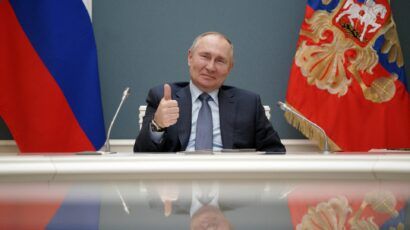A European assessment
July 20, 2015
The nuclear deal adopted the E3/EU+3 and Iran on July 14 is a political game changer, in many ways. Successful implementation could pave the way for a reintegration of Iran into the international community. It could foster a more constructive role of Tehran in efforts to tackle some of the many regional security problems. Failure would likely lead to increased isolation of Iran and poison US-Iran relations for many years, if not decades.
The Joint Comprehensive Plan of Action (JCPOA) could also provide an urgently needed boost for nuclear non-proliferation efforts. Should Iran for the next 15 to 25 years faithfully restrict its nuclear program and provide additional transparency, suspicions of regional neighbors about Iran’s intentions may be alleviated. The risk of a regional nuclear arms race would decrease. One key milestone in this regard will arrive soon. By December 15, the International Atomic Energy Agency (IAEA) will deliver a “final assessment” of Iran’s past nuclear weapons-related activities. A transparent, comprehensive account by Tehran of efforts to develop a nuclear weapons capability is one litmus test for the JCPOA.
The E3/EU+3 and Iran declare in the JCPOA’s preamble that the agreement “should not be considered as setting precedents for any other state or for fundamental principles of international law and the rights and obligations under the NPT and other relevant instruments.” Legally speaking, this is a wise statement because it limits the applicability of the accord to the unique case of Iran. But at the same time, it is difficult to underestimate the political importance of the JCPOA for global nonproliferation efforts.
Successful implementation of JCPOA over the next 15 to 25 years would set the precedent of a non-compliant state rebuilding international confidence in the peaceful nature of its nuclear program, without regime change. Many of the mechanisms and instruments detailed in the JCPOA would surely be reference points for future attempts to resolve similar problems.
The Joint Commission of the E3/EU+3 and Iran is the most innovative part of this overall effort to bring Iran back into the nonproliferation regime. The commission and its technical working groups will simultaneously serve as a clearing-house, a monitoring mechanism, and a decision-making and implementing body. This large and diverse portfolio is likely to complicate proceedings. And great care will have to be taken that the Joint Commission’s decisions do not undermine the authority of the IAEA.
Germany is the only member of the Joint Commission that is a non-nuclear weapon state in good standing under the NPT. Berlin will thus have to represent the interest of the 186 NPT non-nuclear weapon states. Berlin and the EU’s high representative for foreign affairs and security policy, who will be the commission’s coordinator, bear special responsibility; they will have to counter the impression that NPT nuclear weapon states who are also permanent members of the Security Council—China, France, Russia, the United Kingdom and the United States—exploit their already privileged positions to steer implementation of the JCPOA to suit their interests.
The JCPOA could also demonstrate the effectiveness of nonproliferation instruments that do not yet enjoy universal support. Thus, monitoring and verification hinge on procedures detailed in the Additional Protocol, which Iran has pledged to apply and later ratify. The JCPOA’s implementation plan incentivizes Iran to cooperate with the IAEA beyond the Additional Protocol, so the Agency can draw “broader conclusions” about the absence of undeclared nuclear activities, at an early date. This would strengthen the IAEA’s case for using tailor-made “state level” verification approaches. The JCPOA contains many other novel and important elements that might be emulated. These include the conversion of the heavy water reactor in Arak to a proliferation-resistant design and using international cooperation on nuclear research to reduce the likelihood of military misuse.
To be sure, from the perspective of the global non-proliferation regime the JCPOA also has shortcomings. For example, Tehran has been offered nuclear assistance even before the process of reestablishing international confidence is completed, and even though it will not give up its enrichment plans. This is likely to undermine efforts to convince other states, in the context of nuclear cooperation agreements, to waive the right to reprocess used nuclear fuel and close the nuclear fuel cycle.
The JCPOA will take the NPT into a new era. The nuclear accord carries in it the seeds of a more effective non-proliferation regime. Should the agreement withstand the tests of time, it is likely to be cited in the future as proof that even the toughest non-compliance cases can be resolved through diplomacy, within the NPT framework. Should the deal collapse, the impression could prevail that treaty violations are best dealt with through sanctions and military force. This danger alone justifies every effort to make the JCPOA work.
Oliver Meier
German Institute for International and Security Affairs (SWP)
EXPERT COMMENTARY













